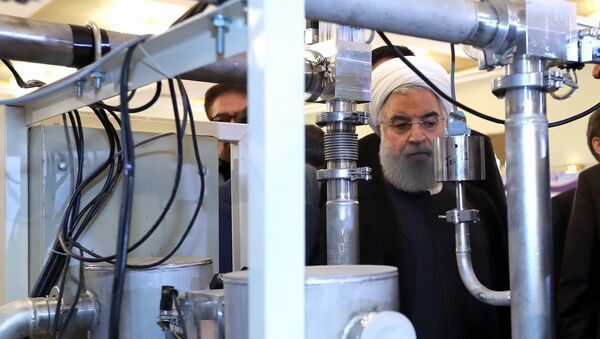"In addition, US decision not to fully renew waivers for nuclear non-proliferation projects could bear significant security implications," Skoog told the UN Security Council on Thursday evening.
On 3 May, The Trump administration granted 90-day waivers for Iran’s nonproliferation activities at the Bushehr, Fordow, Arak and Tehran Research Reactor nuclear facilities.
Skoog said the European Union support for efforts to sustain key nuclear non-proliferation projects that are a vital part of the Joint Comprehensive Plan of Action (JCPOA), better known as the Iran nuclear agreement.
"We also welcome the efforts of Russia to continue implementation of the project in Fordow for the production of medical stable isotopes," Skoog said.
Russia's nuclear fuel company TVEL, a subsidiary of state nuclear corporation Rosatom, has been working on the project to modify two cascades of gas centrifuges at the Fordow plant to enable the production of stable (non-radioactive) tellurium and xenon isotopes for medical purposes since 2017. TVEL’s work has been in accordance with the Iran nuclear agreement.
In May 2018, the United States withdrew from the nuclear agreement and re-imposed economic sanctions on Iran. Almost a year later, Tehran responded by warning that it would steadily abandon its nuclear agreement obligations every 60 days unless the other signatories help facilitate continued oil and other trade with Iran.
Tehran has been gradually following through on its warnings, and on 7 November it began its fourth stage in the process by enriching uranium at the Fordow plant.


